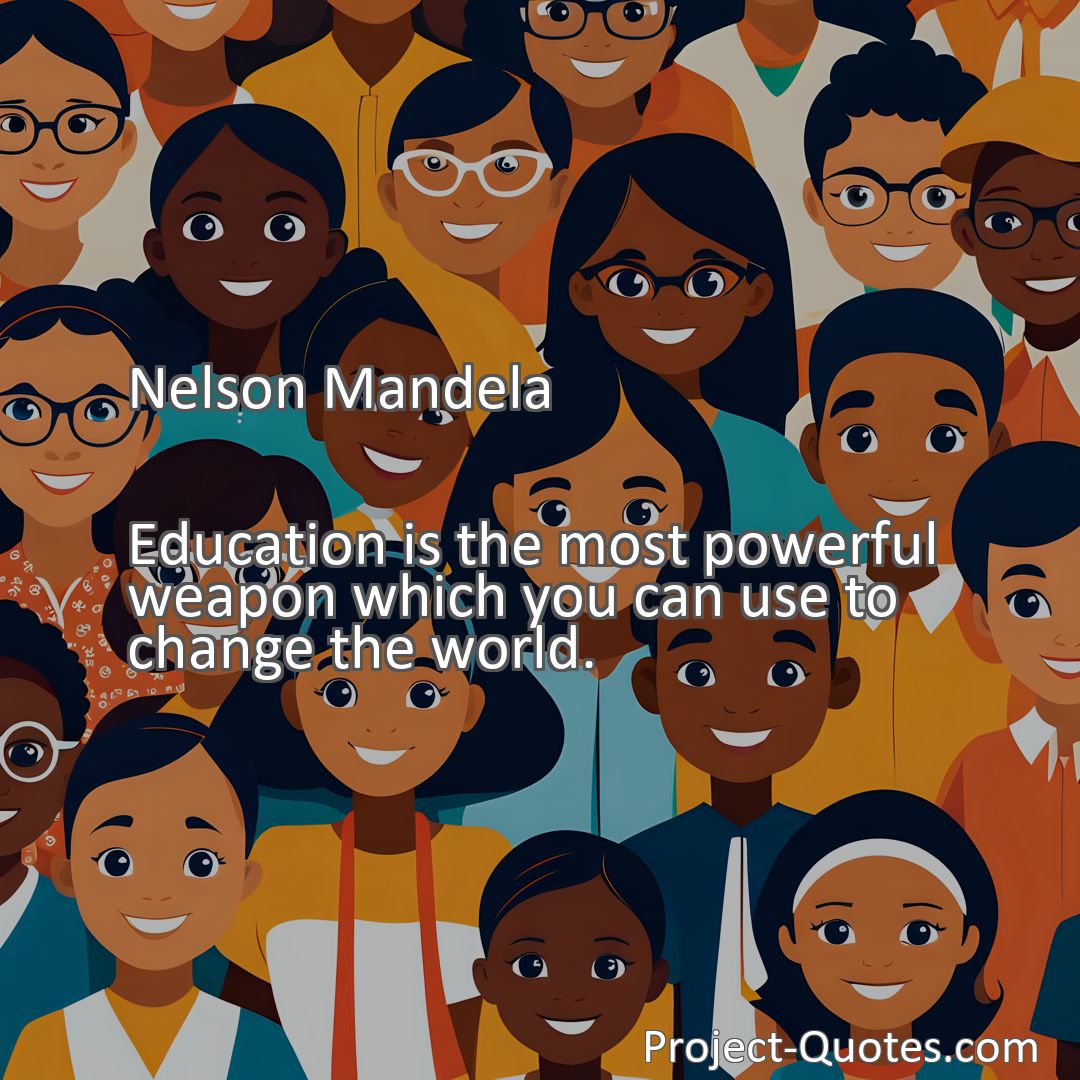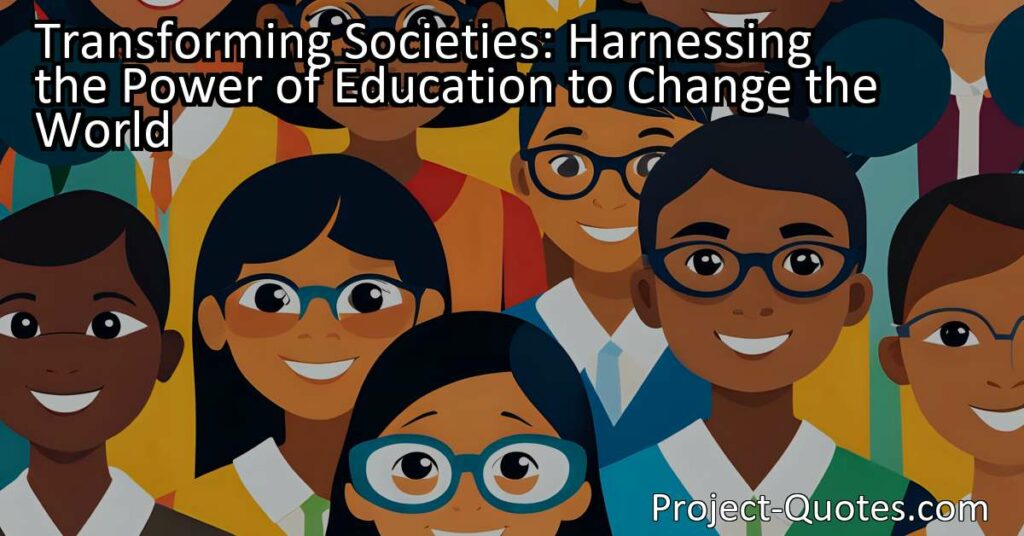Education is the most powerful weapon which you can use to change the world.
Nelson Mandela
Transforming Societies: Harnessing Education to Bring Healing to Divided Nations Education holds the potential to heal societies torn apart by conflict and promote peace and reconciliation. By fostering understanding, empathy, and tolerance, education can break the cycle of violence and create a brighter future for divided nations. With collective efforts and equal access to quality education, we can harness its power to transform societies and bring about lasting change.
Table of Contents
Meaning of Quote – Education is the most powerful weapon which you can use to change the world.
Education is often seen as a pathway to success, a means to acquire knowledge and skills that can enable individuals to lead fulfilling lives. But beyond personal growth and empowerment, education has the power to transform societies and shape the course of history. As Nelson Mandela eloquently stated, “Education is the most powerful weapon which you can use to change the world.”
When we speak of education, we often think of traditional schools and classrooms, with teachers imparting knowledge to students. While this certainly plays a significant role, education encompasses much more than formal schooling. It is a lifelong process that occurs not only within the walls of educational institutions but also in our everyday experiences and interactions with the world.
The power of education lies in its ability to broaden our horizons and nurture critical thinking. It equips individuals with the tools to question the status quo, challenge social injustices, and reshape societal norms. Through education, we gain the ability to analyze information, weigh different perspectives, and make informed decisions. It empowers us to become active participants in our societies, fostering democratic values and civic engagement.
One of the ways education can change the world is by promoting equality and combating discrimination. Education serves as a catalyst for social change by breaking down barriers and promoting inclusivity. It helps dismantle prejudices and biases, fostering empathy and understanding among individuals from diverse backgrounds. When we educate ourselves on the experiences and perspectives of others, we become more equipped to challenge systems of oppression and advocate for a more just and equitable society.
Education also enables individuals to break free from the cycle of poverty and uplift entire communities. By equipping individuals with knowledge and skills, education opens doors to economic opportunities and social mobility. It empowers individuals to secure stable employment, provide for their families, and contribute to their communities. Through education, we can address systemic issues such as income inequality and create a more prosperous society for all.
Furthermore, education plays a crucial role in fostering peace and resolving conflicts. By promoting dialogue, understanding, and respect, education cultivates a culture of peace. It equips individuals with the skills to resolve conflicts peacefully and promotes tolerance and acceptance of diverse cultures and beliefs. Education helps break the cycle of violence, transforming societies torn apart by conflict and enabling reconciliation.
In a rapidly changing world, education is vital for adapting to new challenges and seizing opportunities. Technological advancements and globalization have transformed the nature of work, creating a need for individuals with adaptable skills in various fields. Education provides the foundation for lifelong learning, ensuring that individuals can continuously acquire new knowledge and adapt to changing circumstances.
Not only does education shape the individuals who pursue it, but it also influences the direction of entire nations. Leaders and policymakers recognize the power of education in driving economic growth and social progress. Investments in education lead to increased productivity, innovation, and technological advancements. Nations that prioritize education are more likely to achieve sustainable development and prosperity.
However, despite its transformative potential, access to quality education remains a significant challenge worldwide. Many individuals are still denied the right to education due to various factors such as poverty, gender inequality, and armed conflicts. This lack of access perpetuates inequality and stifles the potential of individuals and societies.
To truly harness the power of education and change the world, it is crucial to ensure equal access to education for all. This requires collective efforts from governments, civil society organizations, and individuals. It involves addressing the systemic barriers that prevent marginalized groups from accessing quality education and investing in infrastructure, resources, and well-trained teachers.
As individuals, we can also play a part in using education to change the world. We can advocate for inclusive education policies, support initiatives that promote access to education, and engage in lifelong learning ourselves. By valuing education and embracing its transformative power, we can contribute to creating a more just, equitable, and peaceful world.
In conclusion, Nelson Mandela’s words ring true: “Education is the most powerful weapon which you can use to change the world.” Education has the power to break down barriers, promote equality, foster peace, and empower individuals to shape the course of history. It is through education that we can collectively work towards creating a more just and sustainable future for all.
I hope this quote inspired image brings you hope and peace. Share it with someone who needs it today!


